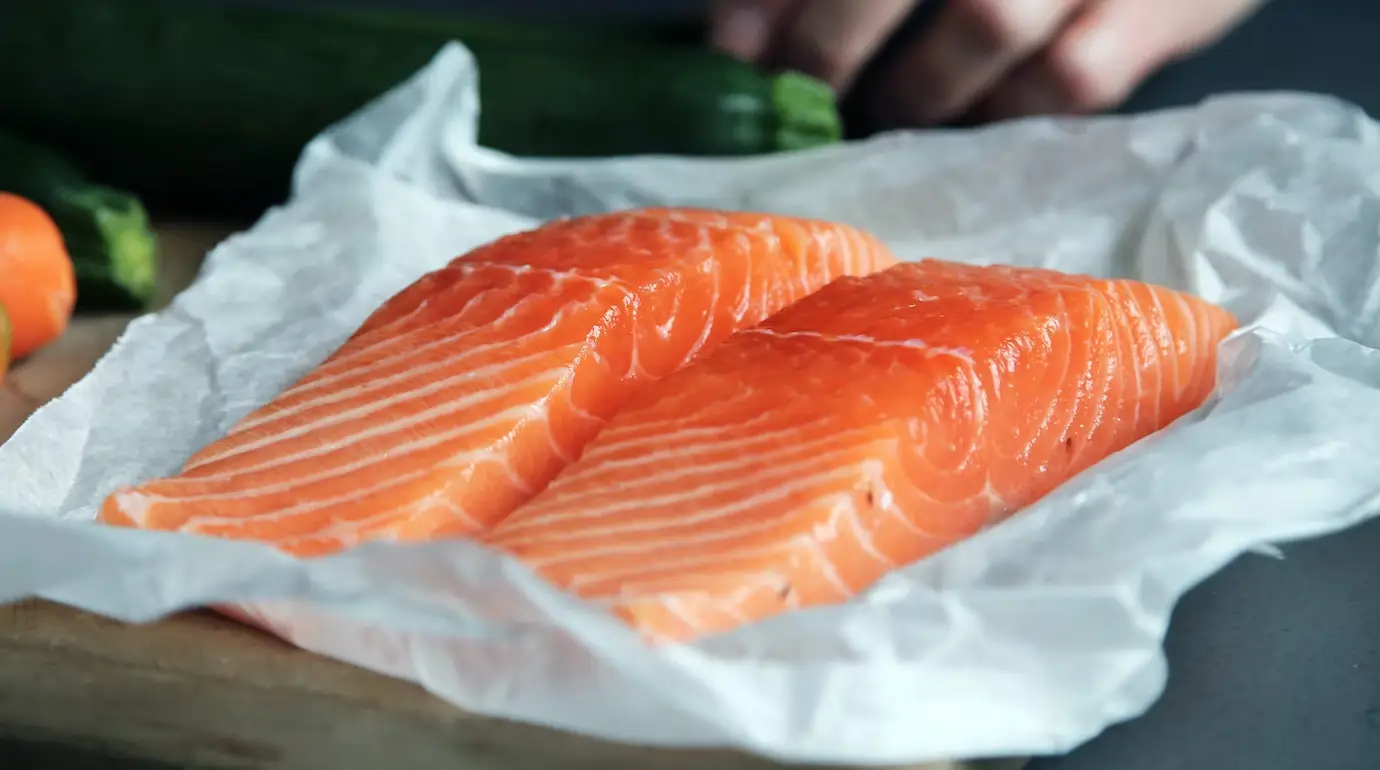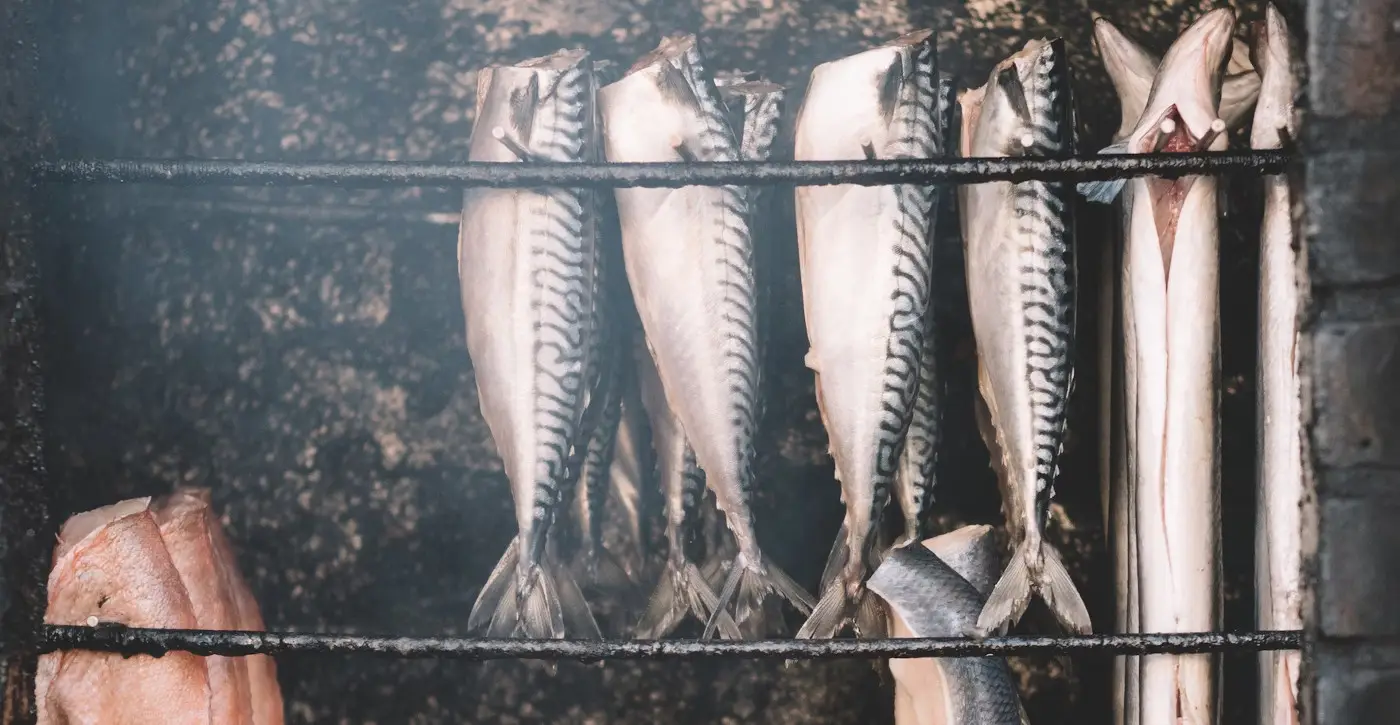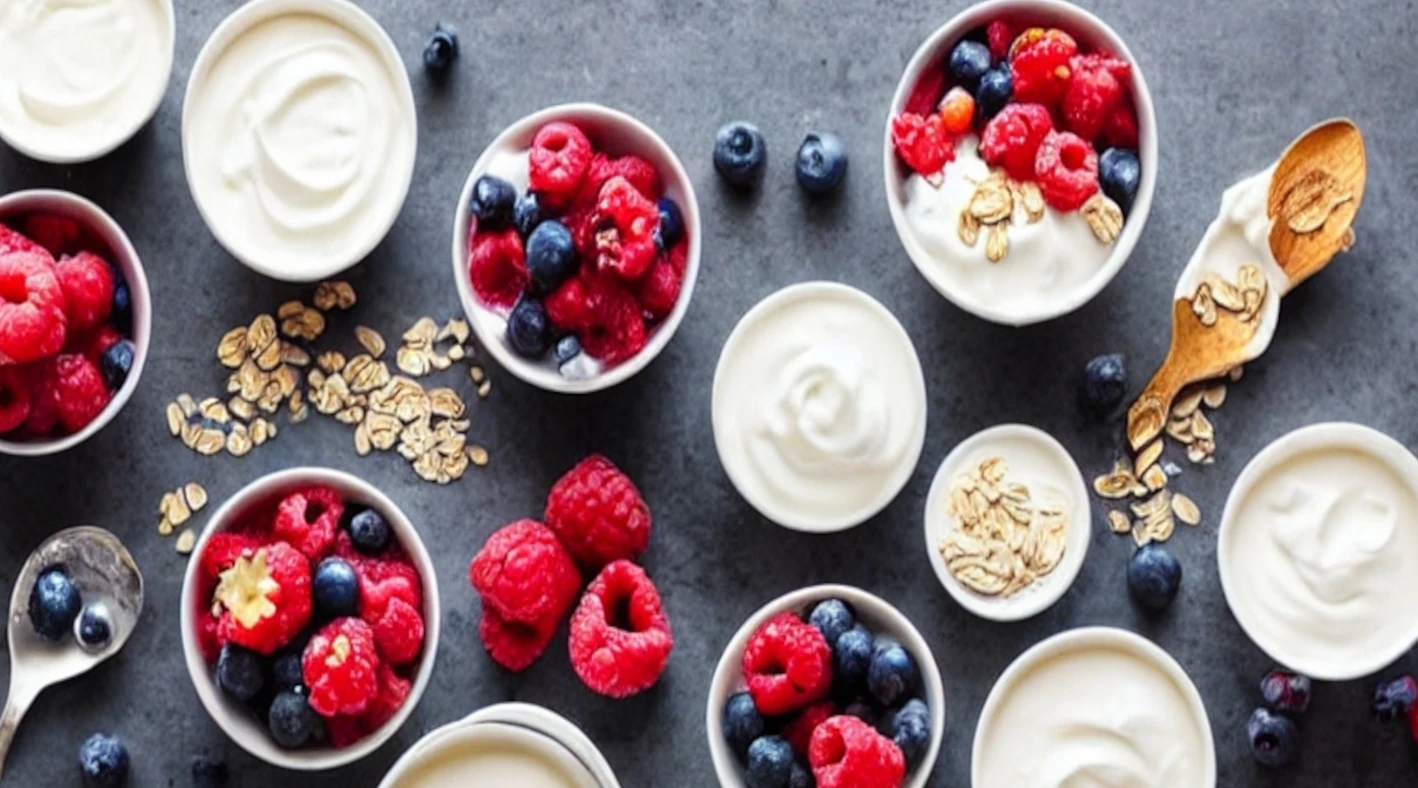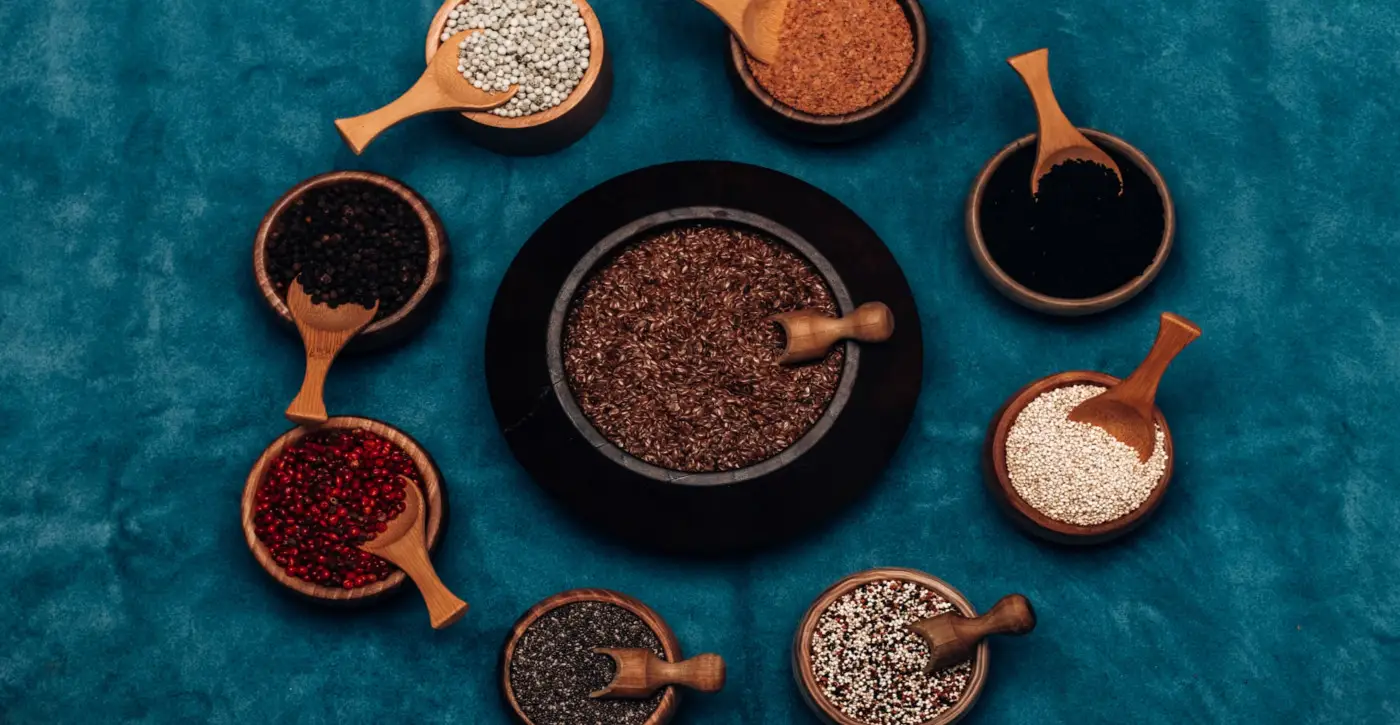Salmon Lysine and Arginine Info Sheet
Overview
Salmon is a popular and nutritious fish that can be eaten raw, smoked, baked, grilled, or poached.It has a pinkish-orange flesh and a rich, oily flavor.
Salmon is a good source of protein, omega-3 fatty acids, vitamin D, selenium, and B vitamins.
It may help lower blood pressure, reduce inflammation, and improve brain function.
| Name | Lysine (mg/100g) | Arginine (mg/100g) | Ratio |
|---|---|---|---|
| Salmon | 1823.53mg | 1176.47mg | 1.55 |
Salmon contains 1823.53mg of Lysine and 1176.47mg of Arginine per 100g of product.
This means Salmon has a high Lysine-Arginine ratio of 1.55.
Because Salmon contains much higher levels of lysine than arginine, it is highly recommended for people who suffer from herpes, as it may prevent outbreaks.
Lysine Considerations
Fish like salmon is a great source of lysine. Lysine is an essential amino acid that is important for collagen synthesis, wound healing, immune function, and calcium absorption.
Salmon provides about 91% of the recommended daily intake (RDI) of lysine for an adult.
Lysine has the potential to prevent or treat cold sores, which are blisters caused by the HSV-1 virus, also known as herpes.
Lysine operates by inhibitnig the proliferation of HSV-1, which relies on another amino acid, arginine, to reproduce and infect cells.
Lysine can only be acquired through our diet, and is present in different high-protein foods such as eggs, dairy products, fish, meat and poultry.
Arginine Considerations
Arginine is a semi-essential amino acid that is involved in nitric oxide production, blood vessel dilation, and protein synthesis.
Salmon provides about 59% of the RDI of arginine for an adult.
Arginine has a variety of benefits for our health and performance, such as lowering blood pressure, enhancing wound healing, and increasing exercise endurance.
Arginine can also affect the herpes virus, which causes cold sores and genital herpes.
Studies suggest that arginine may help the virus grow and cause outbreaks, so people with herpes may want to avoid foods that are high in arginine or take lysine supplements to block its effects.
Lysine-Arginine Ratio
Salmon boasts a lysine-arginine ratio of 1.550, indicating it is rich in lysine compared to arginine.
This composition could potentially inhibit the replication of viruses such as herpes simplex.
This is because food higher in lysine can inhibit the availability of arginine for the herpes virus, which needs arginine to propagate. Fish in general is an optimal source of lysine.
The herpes simplex virus, which causes oral and genital herpes, needs arginine to multiply and infect cells.
Lysine, on the other hand, can interfere with the absorption of arginine in the intestine, and thus limit the availability of arginine for the virus.
By eating a diet higher in lysine than arginine, one may be able to prevent or treat herpes flare-ups.
Foods that have a high lysine-arginine ratio include milk and cheese, fish, poultry, fruits, and vegetables.
These foods can supply the body with sufficient lysine to compete with arginine and inhibit the virus from replicating and causing symptoms.
Dietary Considerations
Fish is a great source of lysine, which can help inhibit or reduce herpes outbreaks.
Fish also contains omega-3 fatty acids, which can lessen inflammation and improve cardiovascular health.
Most fish have more lysine than arginine, but some fish have a higher ratio than others.
Salmon, catfish, whitefish, mackerel, trout, and sardines are some of the fish that have the most lysine compared to arginine.

For instance:
Make sure to drink plenty of water to keep yourself hydrated and eliminate toxins from your body.
Water can also help you avoid dryness and irritation of the skin and mucous membranes, which can lead to outbreaks.
You may want to take l-lysine supplements.
L-lysine is known to prevent herpes outbreaks and it can help stop a cold sore in its initial stages by "starving" the virus of arginine before it has a chance to cause a cold sore.
Eating foods that can soothe your symptoms and speed up your healing process, such as honey, yogurt, aloe vera, and chamomile.
These foods have anti-inflammatory, antiviral, and antibacterial properties that can reduce pain, swelling, and itching, and promote tissue repair.
Check more food information






